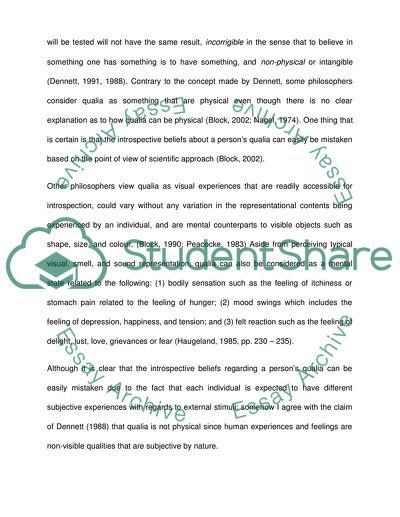Cite this document
(“What is Qualia Essay Example | Topics and Well Written Essays - 2000 words”, n.d.)
Retrieved from https://studentshare.org/psychology/1557325-what-is-qualia
Retrieved from https://studentshare.org/psychology/1557325-what-is-qualia
(What Is Qualia Essay Example | Topics and Well Written Essays - 2000 Words)
https://studentshare.org/psychology/1557325-what-is-qualia.
https://studentshare.org/psychology/1557325-what-is-qualia.
“What Is Qualia Essay Example | Topics and Well Written Essays - 2000 Words”, n.d. https://studentshare.org/psychology/1557325-what-is-qualia.


